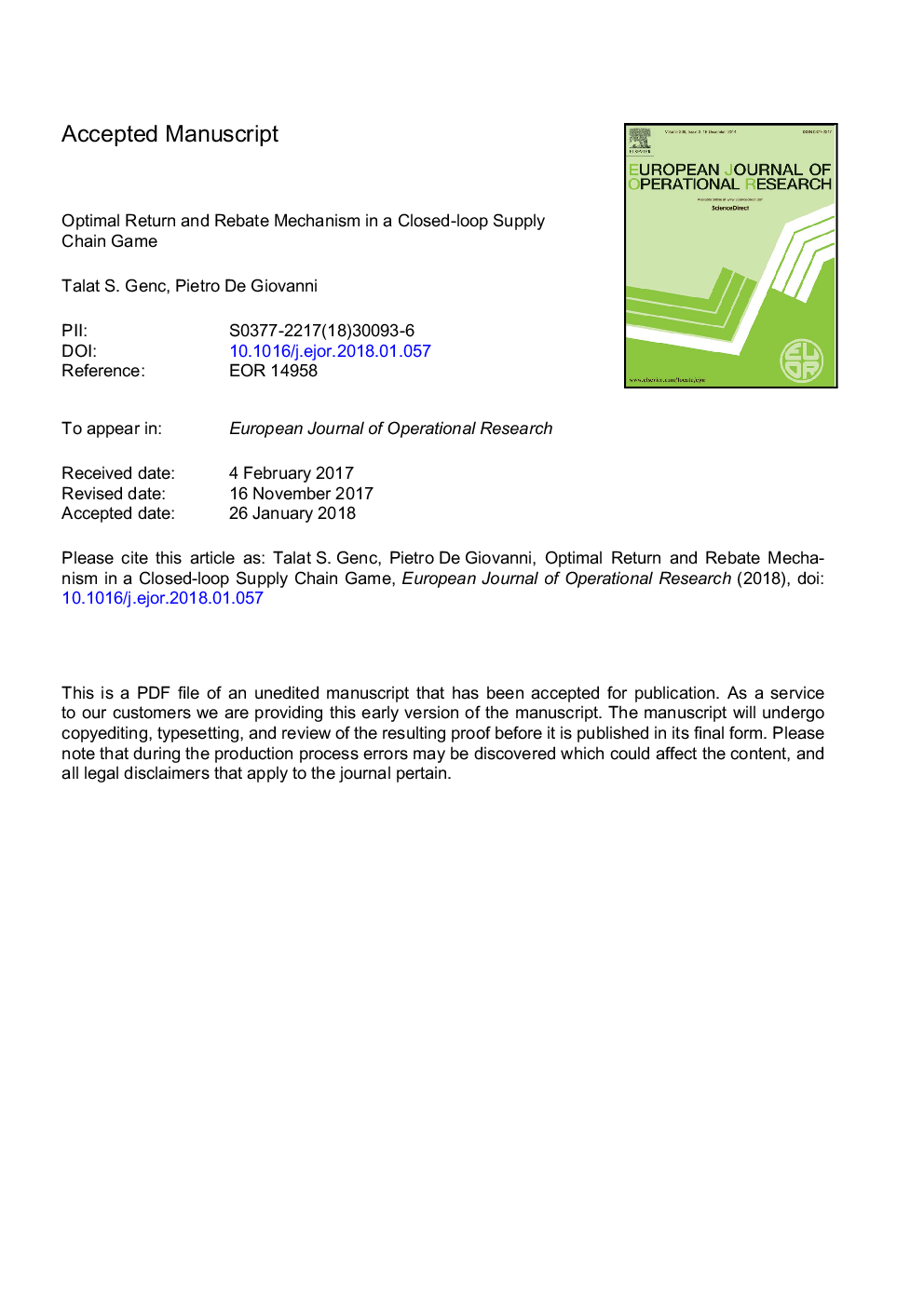| Article ID | Journal | Published Year | Pages | File Type |
|---|---|---|---|---|
| 6894722 | European Journal of Operational Research | 2018 | 49 Pages |
Abstract
Within a Closed-loop Supply Chain (CLSC) framework we study several consumer return behaviors for the used products which are based on the product prices and rebates. Consumers evaluate the rebate they receive as well as the price of the new product before deciding whether to dump a return. Therefore, the number of used products returned is examined under two types of rebates: a fixed rebate and a variable rebate. We search for the optimal rebate mechanism and find that the CLSC profits are higher under an variable rebate policy. This finding justifies the industry practices that employ a rebate mechanism based on both the value and the price of used item. We offer two types of solution concepts to the CLSC games: open-loop Stackelberg solution and Markov perfect Stackelberg solution, which are commonly employed in the dynamic games literature. While we mainly employ Markovian equilibrium, we also allow firms to utilize open-loop strategies so as to assess the impact of precommitment on the market outcomes. Therefore, we offer a comprehensive analysis of all possible market equilibrium solutions under different strategic considerations and the commitment deliberations. We show that under the fixed rebate regime open-loop solution coincides with Markov perfect solution. Furthermore, we show how consumer return behavior impacts the dynamic nature of the game. We find that the time frame is irrelevant if firms offer a fixed rebate. In contrast, the game will be fully dynamic when firms offer a variable rebate.
Keywords
Related Topics
Physical Sciences and Engineering
Computer Science
Computer Science (General)
Authors
Talat S. Genc, Pietro De Giovanni,
